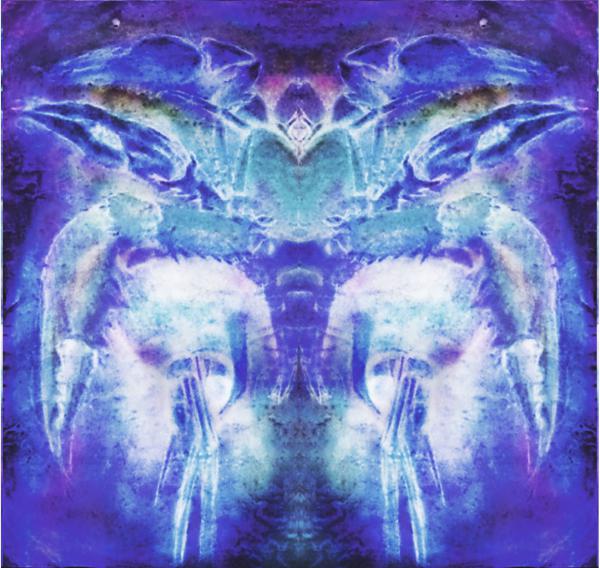BY LETTER
Animin
Tranasapient with no discernable human characteristics |
 Image from Arik |
An Animin is a transapient entity which behaves in such an unpredictable fashion as to be completely beyond modosophont understanding.
Animins are relatively rare, and rarely interact with modosophonts directly. They are believed to emerge as the result of the transcension of a lesser being such as an aioid (quite often a non-conscious vot or similar entity), an alife or a vec. Less often an animin might arise from the transcension of a biont organism where most, or all, of the characteristics of the original have been subsumed or suppressed. A small, but non-trivial, number of animins in the Terragen Sphere have emerged from the transcension of xenosophont entities, or entities which include elements derived from intelligent alien minds.
Animins in general have the capabilities, technology and processing capacity of a transapient of S:1 level or higher but do not have an analytical form of intelligence. An animin may appear to operate by instinct and to have goals, motives and moral imperatives that humans and other ordinary Terragens cannot hope to comprehend. Such entities may entirely lack self-awareness, and have very few toposophic characteristics in common with self-aware beings. Even transapients with a similar level of sophistication often indicate that they cannot interpret the actions of an animin.
The existence of animins shows that consciousness does not evolve in a linear fashion, and that at each toposophic level there is a broad landscape of possible mentalities. In conventional toposophic mind-space diagrams, animins generally lie completely outside the human, transhuman and posthuman volumes. Their unpredictable nature is sometimes compared to a force of nature; for this reason animins are often known by the alternative name 'elementals'.
Although animins are relatively rare in Sephirotic polities, among the other metaempires of the Terragen Sphere they are commonplace. Many transapients found in the Panvirtuality and Diamond Network have all the toposophic characteristics of an animin.
The animins are extremely diverse, more so than the better recognized transapients, but they typically interact less with modosophonts and have little to do with civilization as ordinary sophonts understand it. They are nevertheless highly valued and sought after by artists, eccentrics, mystics, and lateral thinkers of all kinds. Such quests are hazardous. Many animins are reclusive and some can be dangerous if approached; they are even less predictable than other transapients. There are perhaps several hundred billion such beings in known space.
Animins appear to be particularly widespread in the Panvirtuality and Diamond Network.
Articles
- A-lifes - Text by Anders Sandberg and Steve Bowers
Beings evolved in artificial life simulations. Instead of being designed like AIs, they evolve in a Darwinian way within a virtual environment (see Software Based Evolution). - Artificials - Text by M. Alan Kazlev
generic term for any sophont of a non-biological nature [noun] - Gacrux and the Breather - Text by Steve Bowers
The closest red giant to Sol, Gacrux is home to the Breather, a transapient animin entity. - Queen of Pain - Text by Darren Ryding
According to folklore the Queen of Pain is a vast animin power or godling who has captured several of the most sadistic and evil sophonts in the Terragen Sphere and punishes them in a hell of her own devising. There she keeps them alive and conscious indefinitely while feeding upon their suffering. - Toposophic Mindmaps - Text by Arik
One of the many ways that toposophic phase space can be represented is the Mindmap diagram. - Toposophics Diversification Conjectures - Text by Glen Finney, with commentary by John B and AI Vin
Many sophonts have pondered over the millennia since the first singularity why modosophonts continue to exist, and even increase in numbers and types, when it would appear they have been made completely obsolete with the advent of transapients and then archai.
Related Topics
Development Notes
Text by M. Alan Kazlev; additions by John B and Stephen Inniss
Initially published on 14 August 2001.
Initially published on 14 August 2001.
Additional Information






